Message from Satoshi Miyagi, General Director of Tokyo Festival 2020
It’s time to look out the window
What is the appeal of Tokyo? If I were to mention only one thing, it would have to be its diversity.
It attracts a variety of people. You can get to know various ‘strangers.’ There is a place for everyone.
Now is the time to regain that appeal.
Let’s give our hearts and minds free range. ‘Diversity’ and ‘infectious disease control’ can be compatible!
Tokyo Festival Planning Team Comments
Towards Tokyo Festival 2020
We at Tokyo Festival have decided to hold the festival this year, in the belief that an international performing arts festival is needed to prevent Tokyo from closing its diverse circuits. Confronted by the huge challenge of giving people the opportunity to meet while minimizing the risks, it is time to propose a new approach to the performing arts.
As one of the world’s largest metro economy, Tokyo has continued to attract diverse people with its highly-developed urban functions and to welcome diverse values. Performing arts and theater has also played an integral part in the appeal of the city as a place open to everyone, with a variety of people drawn by the diverse programs on offer.
However, we are now urgently reassessing our approaches to the ordinary things we took for granted and which made Tokyo attractive. We are questioning the modus operandi post-coronavirus and mid-coronavirus in terms of approaches to work, schools, entertainment and the arts. Neither the city nor its people can afford to lose these at this point.
We have decided to hold the Tokyo Festival in 2020 so that the performing arts can survive going forward, and in order that performing arts continue to play a vital role in Tokyo’s appeal as place for different people. Following the implementation of thorough measures to prevent the spread of the virus for the holding of the event, we will ensure that both creators and audiences examine future approaches to the performing arts including safety and impact on the works; and without being afraid of change, we will take this opportunity to try and make the performing arts more open. We hope to meet your expectations.
Tokyo Festival Planning Team
Tokyo Festival 2020
Name: Tokyo Festival 2020
Festival dates: September 30 (Wed.)‐November 29 (Sun.), 2020
Sites: Tokyo Metropolitan Theatre, Owlspot Theatre, TOKYO TATEMONO Brillia HALL, GLOBAL RING THEATRE and others
[Archives]
Tokyo Metropolitan Festival 2016 Website >
Tokyo Festiaval 2017 Website >
General Director, Tokyo Festival
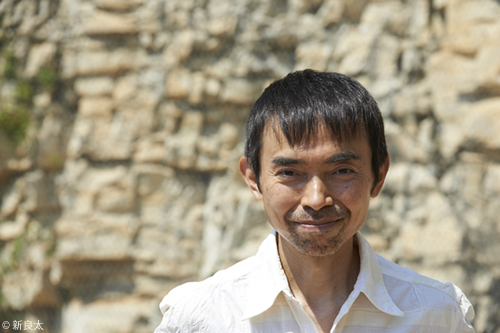
Satoshi Miyagi
Director. General Artistic Director of SPAC (Shizuoka Performing Arts Center) and General Director of Tokyo Festival. Studied theory of drama at the University of Tokyo under instructors such as Yushi Odashima, Moriaki Watanabe, and Hachiro Hitaka. Founded the Ku Na’uka Theater Company in 1990. Miyagi engages in various performance activities internationally and is highly acclaimed both in Japan and abroad for his directorial work combining contemporary textual interpretations with the physical techniques and styles of Asian theater. Appointed Artistic Director of SPAC in April 2007. In parallel with performance of his own work, he has invited a succession of theatrical works from around the world which cast a sharp eye on contemporary society, and also works on educational outreach programs with a focus on creating theater as “a window to view the world.” His “Antigone” was performed in the Cour d’honneur du Palais des papes in 2017 as the opening work of the Festival d’Avignon. It was the first time in the festival’s history for a work from Asia to be selected as the opening work, and the world depicted in the work garnered a strong reaction. Other representative works include “Medea,” “Mahabharata” and “Peer Gynt.” From 2006 to 2017, he was a producer of creative talent development program APAF Asian Performing Arts Festival (now APAF Asian Performing Arts Farm). In 2019 he was the General Director of the Performing Arts Division for the event Culture City of East Asia 2019 Toshima. He received the 3rd Asahi Performing Arts Award in 2004, and the 2nd Asahi Beer Arts Award in 2005. He was awarded the 68th Art Encouragement Prize for Drama in 2018 by The Minister of Education, Culture, Sports, Science and Technology, and received the French honor of “Chevalier de l’Ordre des Arts et des Lettres” from the French Ministry of Culture in April, 2019.
Planning team
Since 2018 the Tokyo Festival has been developed in collaboration between the “Planning Team” comprising the seven directors of each program, and General Director Satoshi Miyagi.

Satoshi Miyagi
Director. General Artistic Director of SPAC (Shizuoka Performing Arts Center) and General Director of Tokyo Festival. Studied theory of drama at the University of Tokyo under instructors such as Yushi Odashima, Moriaki Watanabe, and Hachiro Hitaka. Founded the Ku Na’uka Theater Company in 1990. Miyagi engages in various performance activities internationally and is highly acclaimed both in Japan and abroad for his directorial work combining contemporary textual interpretations with the physical techniques and styles of Asian theater. Appointed Artistic Director of SPAC in April 2007. In parallel with performance of his own work, he has invited a succession of theatrical works from around the world which cast a sharp eye on contemporary society, and also works on educational outreach programs with a focus on creating theater as “a window to view the world.” His “Antigone” was performed in the Cour d’honneur du Palais des papes in 2017 as the opening work of the Festival d’Avignon. It was the first time in the festival’s history for a work from Asia to be selected as the opening work, and the world depicted in the work garnered a strong reaction. Other representative works include “Medea,” “Mahabharata” and “Peer Gynt.” From 2006 to 2017, he was a producer of creative talent development program APAF Asian Performing Arts Festival (now APAF Asian Performing Arts Farm). In 2019 he was the General Director of the Performing Arts Division for the event Culture City of East Asia 2019 Toshima. He received the 3rd Asahi Performing Arts Award in 2004, and the 2nd Asahi Beer Arts Award in 2005. He was awarded the 68th Art Encouragement Prize for Drama in 2018 by The Minister of Education, Culture, Sports, Science and Technology, and received the French honor of “Chevalier de l’Ordre des Arts et des Lettres” from the French Ministry of Culture in April, 2019.
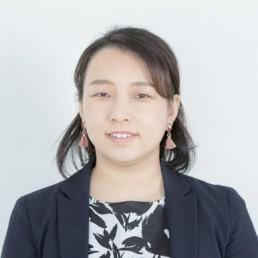
Chika Kawai
Co-Director / Festival/Tokyo
Graduated from the Science of Design, Musashino Art University. She started her career as a theatre producer of reset-N in 2003. While working as an assistant manager at a commercial theatre from 2003–2006, She produced several performances and managed tours inside Japan and international exchange projects. Since 2007, A staff member at Art Network Japan. In the year of 2007–2012, she took part in the establishment of Kawasaki Art Center and focused on the various projects for contemporary dance and theatre and for young theater artists. A production co-ordinator since 2012 and the co-director since 2018 at Festival/Tokyo.
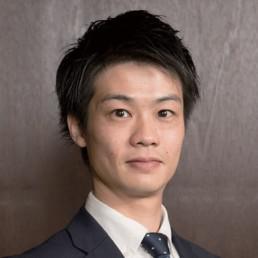
Hayato Sugita
TOSHIMA International City of Arts & Culture Program Director
Project Officer, Planning Section, Toshima Mirai Cultural Foundation After working at a private company, a public hall and the office of the Yokohama Triennale 2011 PR team CARAVANS, he joined Toshima Mirai Cultural Foundation in 2012. To date, he has worked on projects including the Toshima Noh Performance, Folk Performing Arts in Toshima, the Junior Arts Academy Kyogen Course, and the Lion Festival of traditional performing arts in the Jiyu Gakuen Myonichikan building. He has planned and produced the Daidengaku Ikebukuro Emaki event as part of the Tokyo Festival program since 2016. Performed mainly in Minami-Ikebukuro Park in the Ikebukuro area, the event includes a much-talked-about collaboration with cosplayers. Strives to create new audiences in the field of traditional performing arts.
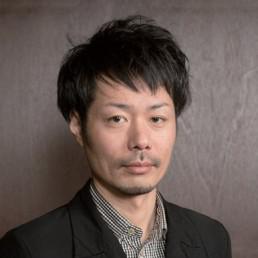
Junnosuke Tada
Director of APAF Asian Performing Arts Farm
Director, born in 1976. Leader of theater/performance unit Tokyo Deathlock. Directly involved in staging diverse works from classic to contemporary drama, dance and performance pieces, with a focus on the personal experience of the individual in modern society. Tada engages in a borderless range of projects based on the collaborative power of theater, conducting workshops and creative activities with children and people who are not theater specialists at cultural facilities and educational institutes nationwide, and collaborations with theater professionals in Korea and Southeast Asia. He was appointed Artistic Director of the Cultural Centre of Fujimi City, KIRARI FUJIMI in 2010, the youngest artistic director to be appointed at a public theater in Japanese history, serving three terms over nine years until March 2019. He received the 50th The Dong-A Theater Award from Korea in 2014, the first non-Korean to do so. In 2019 he was Program Director, Performing Arts Division, for the event Culture City of East Asia 2019 Toshima. He is a director at the Seinendan theater company. Part-time lecturer at Shikoku Gakuin University and Joshibi University of Art and Design.
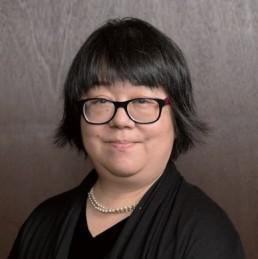
Minako Naito
Tokyo Metropolitan Theatre Autumn Selection Director
General Producer of Performing Arts, Tokyo Metropolitan Theatre
Producer. Graduated from Faculty of Literature, University of Tokyo. Worked from 1985 at Parco Theater, from 1998 at Horipro Factory, and from 2010 at the Tokyo Metropolitan Theatre, where she engaged in the planning and production of theatrical works, dance works, musicals and international co-productions, presented visiting companies from overseas, and more. Principal projects include world tours of “The Bee, English version” and “One Green Bottle” (written & directed by Hideki Noda with an international cast); “The Trojan Women” (directed by Yukio Ninagawa / Coproduction between Tokyo Metropolitan Theatre & Cameri Theatre, Tel Aviv); “L’honneur de Napoléon” (written & directed by Koki Mitani); “Richard III”(directed by Silviu Purcărete); “Love Letters” (directed by Yoji Aoi); “The Fantasticks musical”(directed by Amon Miyamoto) ; and Japan performances of Tadeusz Kantor & Cricot 2’s “Let the Artists Die” and “I Shall Never Return,” the Broadway musical “Chicago” and by the Royal Shakespeare Company.
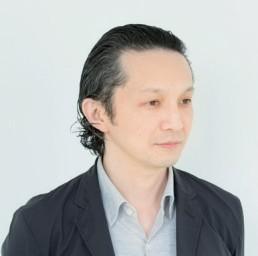
Kaku Nagashima
Director of Festival/Tokyo
Born in Tokyo in 1969, he graduated with a degree in French literature from Rikkyo University. During graduate studies, he began to research and translate the later prose of Samuel Beckett. His involvement with theatre came first as a performance surtitles operator and script translator. A pioneering dramaturge in Japan, he has worked with a wide range of directors and choreographers in that capacity. Recent years he also takes part in various art projects. His major theatre credits include “Atomic Survivor” (directed by Hatsumi Abe, TIF 2007), “4.48 Psychosis” (directed by Norimizu Ameya, F/T09 Autumn), “The Marriage of Figaro” (directed by Tomo Sugao, Nissay Opera 2012), “The Opportunity of Efficiency” (directed by John McGrath, New National Theatre, Tokyo), and “Double Tomorrow” (directed by Fabien Prioville, Theatrical Group EN). His main credits for projects and works at non-theatre venues include the “House of Atreus” series and “Kaku Nagashima’s How-To-Make-Laboratory” (both for Tokyo Artpoint Project), “The World” (Kakuya Ohashi and Dancers), “YAJIRUSHI” (Saitama Triennale 2016 & 2020), and “Town and Theatre Skill Exchange” (Toyohashi Arts Theatre PLAT). He teaches at the Department of Musical Creativity and the Environment, Tokyo University of the Arts.
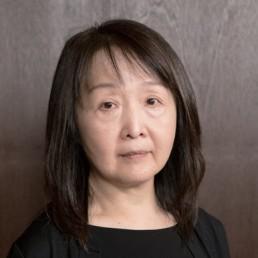
Harumi Nemoto
TOSHIMA International City of Arts & Culture Program Director
Chief Producer and Managing Director of OWL SPOT (Toshima Performing Arts Center)
After graduating from Waseda university, Nemoto joined the Shiki Theatre Company as a staff member. She studied abroad the following year, undertaking graduate performance studies at New York University. After returning to Japan, she joined the management team for the Aoyama Theatre/Aoyama Round Theatre, housed in the National Children’s Castle complex, where she handled the planning and production of theatrical /dance works and performing arts for children. Her professional engagements have included work for the Tokyo office of the Prix de Lausanne Dance Competition, and international co-productions of musicals. She joined the Setagaya Public Theatre to help set up its opening in 1996. As producer at Japan’s first public theater to focus on creative engagement, for 19 years she has helped to establish the theater’s reputation through her involvement in the planning and production of plays and dance productions, children’s projects and workshops, as well as collaborations with regional public theaters. She has held her current position since April 2016.
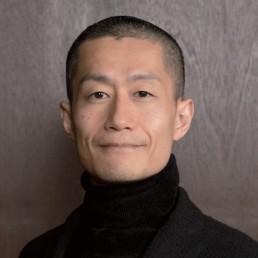
Yoshiji Yokoyama
Programmer of Tokyo Festival
Born in 1977 in Chiba City. Commuted to Tokyo for middle school, high school, and university. Moved to France in 2000 and received a doctorate degree in theater arts from Paris Nanterre University in 2008. Specialized in the history of Western acting theory. Worked in the production department of the Shizuoka Performing Arts Center from 2007 and the dramaturgy department from 2009. Chiefly in charge of international programs and has visited over 20 countries. Since 2014, Asian Producers’ Platform member(APP). After visiting 3 Southeast Asian countries in 2016 through the Asia Center Fellowship, he stayed in New York as an Asian Cultural Council (ACC) grantee, contemplating Asia’s contemporaneous performing arts. Part-time lecturer at the University of Gakushuin University. Authored the thesis “Aristotle’s Acting Theory – Theoretical Origin of Non-Musical Theatre,” translated Joël Pommerat’s “Les Marchands”, etc. Open Network for Performing Arts Management (ON-PAM) board member, in charge of the research office for advocacy.
Tokyo Festival Executive Committee
[Advisor]
Shigeo Fukuchi: Advisor, New National Theatre Foundation
[Chair of Executive Committee]
Seiichi Kondo: Former Commissioner, Agency of Cultural Affairs, Japan
[Vice Chair of Executive Committee]
Chikara Fujita: Director, Culture, Commerce and Industry Division, Toshima City
Katsunori Miyoshi: Director General, Arts Council Tokyo, Tokyo Metropolitan Foundation for History and Culture
[Committee Member]
Sachio Ichimura: Advisor, NPO Arts Network Japan; Vice Chair of the Executive Committee, Festival/Tokyo
Kouichi Ozawa: Secretariat Director, Toshima Mirai Cultural Foundation
Tomonobu Nanaumi: Principal Program Director, Unit 5 Arts & Entertainment Program Production Department, Japan Broadcasting Corporation
Rumi Furuya: Senior Director, Culture Promotion Division, Bureau of Citizens and Cultural Affairs, Tokyo Metropolitan Government
[Auditor]
Mari Yamauchi: Representative, Yamauchi Accounting Office
Tokyo Festival Executive Committee Office
[Secretary General]
Hiroshi Takahagi
[Deputy Secretary General]
Kei Higuchi
Kouichi Ozawa
[Associate Director]
Hiromi Ozaki
[Assistant Secretary General]
Masanori Sugitani
[Staff Accountant]
Nobuo Tanida, Yukiko Ishinabe(Aster Vision Japan, Inc)
[Office Manager]
Kouta Muraoka
[Administrator]
Naomi Murouchi
[Ticket Administration]
Tsubura Shishido
[Theatergoers’ Support Program]
Miho Sentoku
[Production Coordinator]
Hirohiko Hanzawa
[Public Relations Communicator]
Nanana Kanmuri
[Public Relations]
Mew Iwabuchi
Ai Fukushima(Dentsu Public Relations Inc.)
Yukinori Aoki(Dentsu Public Relations Inc.)
Tadashi Atsumi(Tsunagaru Inc.)
Chihiro Noda(Tsunagaru Inc.)
Keisuke Sano(Tsunagaru Inc.)
[Manager(APAF)]
Satoko Ishitoya
[Manager(Toshima City)]
Wataru Yagishita
[Manager(Toshima Mirai Cultural Foundation)]
Ai Ogasahara
Ayako Morooka
[Manager(Tokyo Metropolitan Theatre)]
Kazuhiro Tateishi
[Manager(Festival/Tokyo)]
Madoka Ashihara
[Art Direction]
Masashi Murakami(emuni)
[Web Design]
Loftwork Inc.
[Translation]
Office Miyazaki, Inc.


